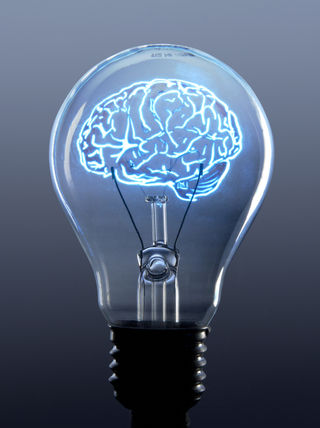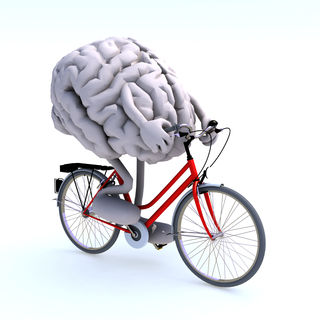Aging
What Is the No. 1 Way to Keep Your Brain Sharp?
Moderate physical activity can slow brain aging by 10 years as you age.
Posted March 28, 2016

Every week, there seems to be another new study reaffirming the neuroprotective brain benefits of physical activity and aerobic exercise. This week is no exception.
For anyone who reads The Athlete’s Way blog posts regularly, I apologize for sounding like a broken record when it comes to the cognitive benefits of exercise. I know you've heard it all before.
That said, as a public health advocate, finding empirical evidence to motivate people to be more physically active is my raison d'être and the ultimate goal of this blog. In my mind, there is no greater motivation to exercise than the power of physical activity to keep your brain sharp.
Physical Activity Can Slow Brain Aging by 10 Years
A new population-based observational study was released this week which found that people who reported 'light-to-no' exercise experienced a decline equal to 10 more years of aging compared to people who reported doing 'moderate-to-intense' exercise in their leisure time.
The March 2016 study, "Leisure-Time Physical Activity Associates with Cognitive Decline: The Northern Manhattan Study,” was published in the journal Neurology.
This new study was conducted by a collaborative team of researchers from Columbia University and the University of Miami. Their findings add to a groundswell of studies which confirm that people who remain physically active have slower rates of cognitive decline as they age.
The latest science-based evidence confirms that physical activity is the number one way to keep your brain sharp. Hopefully, these findings will serve as yet another source or empiric evidence that motivates you to be more physically active. In a press release, co-author Clinton B. Wright, MD, MS, of the University of Miami, said,
"The number of people over the age of 65 in the United States is on the rise, meaning the public health burden of thinking and memory problems will likely grow. Our study showed that for older people, getting regular exercise may be protective, helping them keep their cognitive abilities longer."
Moderate Amounts of Exercise Have Huge Cognitive Benefits
For this study, the researchers analyzed data on 876 people who had enrolled in Columbia University's Northern Manhattan Study. Because leisure-time physical activity (LTPA) is considered to have neuroprotective benefits against dementia, the researchers hypothesized that LTPA is protective against decline in domain-specific cognitive performance. Therefore, the researchers started by using a personal questionnaire to identify LTPA.

Of the total group, 90 percent initially reported light exercise or no exercise. Light exercise included such activities as slow walking and gentle yoga.
The remaining 10 percent reported moderate-to-high intensity exercise, which included activities such as brisk walking, jogging, biking, and aerobics classes. The participants were given tests of memory and thinking skills and a brain imaging MRI scan. Five years later, they took the memory and thinking tests again.
When the researchers analyzed the data, they found that those who reported low activity levels had a greater decline over five years compared to those with high activity levels on tests of how fast they could perform simple tasks and how many words they could remember from a list. The researchers concluded that this variance was equal to 10 years of aging.
Differences in cognitive decline were adjusted for other factors that could affect brain health, such as smoking, alcohol use, high blood pressure, and body mass index (BMI).
Conclusion: Physical Activity Is the No. 1 Way to Keep Your Brain Sharp
"Physical activity is an attractive option to reduce the burden of cognitive impairment in public health because it is low cost and doesn't interfere with medications," Wright concluded. His words echo the conclusion of dozens of other studies in recent years which show that investing relatively small amounts of time and energy into staying physically active pays huge dividends.
Most experts agree, if there's one daily habit or lifestyle choice that you can make to help maintain a healthy mind, in a healthy body throughout your lifespan, physical exercise is the answer.
To read more on this topic, check out my Psychology Today blog posts,
- "Aha! Aerobic Exercise Facilitates the Free Flow of Thought"
- "How Do Motor Regions of the Brain Drive Fluid Intelligence?"
- "Want to Bulk Up Your Brain? Burn Some Calories Via Exercise"
- "Physical Activity Is the No. 1 Way to Keep Your Brain Young"
- "Making Exercise a Habit Prevents Age-Related 'Brain Drain'"
- "How Does Exercise Protect Your Brain from Degeneration?"
© 2016 Christopher Bergland. All rights reserved.
Follow me on Twitter @ckbergland for updates on The Athlete's Way blog posts.
The Athlete's Way ® is a registered trademark of Christopher Bergland.




